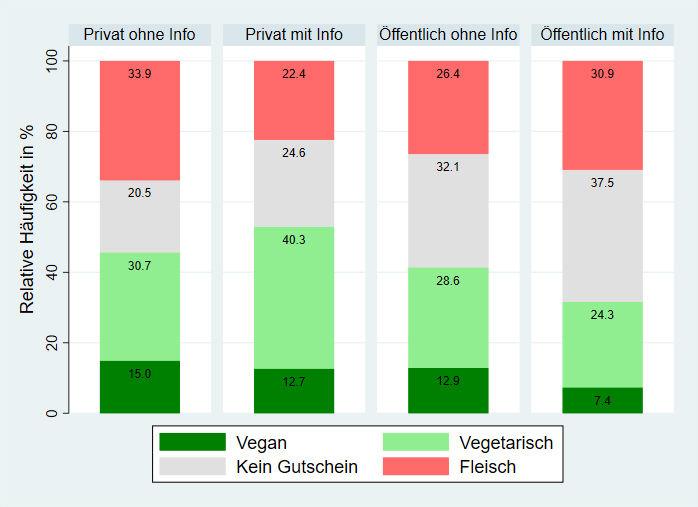Social control does not lead to meat avoidance - on the contrary
Advertisement
People who are reminded of the environmental consequences of meat consumption are more likely to abstain from it - this result of an experiment at the University of Kassel was to be expected. Surprisingly, however, social control does not have this effect. On the contrary.

Study: Social control does not lead to meat avoidance - on the contrary
Universität Kassel
The production of animal products generates more climate-damaging gases than the cultivation of plant-based foods; consumers are therefore often told that they should eat vegetarian or vegan food more often in order to contribute to achieving climate goals. A study by researchers at the University of Kassel now suggests that people do not - as one might assume - give up meat when those around them learn of their meal choice. Instead, even more people opted against vegetarian and vegan products.
Eva Weingärtner and Prof. Dr. Astrid Dannenberg from the Department of Environmental and Behavioral Economics at the University of Kassel conducted the experiment. They asked students to choose which type of sandwich they would like to receive (as a supposed thank-you for a completed task): with meat, vegetarian or vegan. Four representatively formed groups had different general conditions: They were each reminded of the environmental impact of meat or not, and were told that their decision would or would not be made public. 537 responses were received.
As expected, this showed that behavior could be influenced by a reference to the environmental footprint: It reduced the likelihood of choosing the sandwich with meat by 12 percentage points among the "informed." However, this reduction was driven almost exclusively by female participants. The proportion of meat coupons dropped from about 35 percent to about 15 percent among them, while it only dropped from about 33 percent to 27 percent among men. "The finding that women seem to be more flexible in their dietary choices is something we see more often in the literature," says Astrid Dannenberg.
The announcement of the choice, on the other hand, had the paradoxical effect that not more but fewer participants opted for vegetarian or vegan sandwiches - especially when the announcement was combined with information about the environmental impact. Conspicuously many did immediately completely without the sandwich.
To explain this, the researchers pointed to three possible reasons: "Firstly, the concern that moral behavior on display could be perceived as being forced. Secondly, the concern that moral behavior could be rejected by others because they would feel caught out and would have to question their own behavior," says Eva Weingärtner. But it is also possible that the prospect of social control provokes a certain rebelliousness in many participants.
Note: This article has been translated using a computer system without human intervention. LUMITOS offers these automatic translations to present a wider range of current news. Since this article has been translated with automatic translation, it is possible that it contains errors in vocabulary, syntax or grammar. The original article in German can be found here.






























































